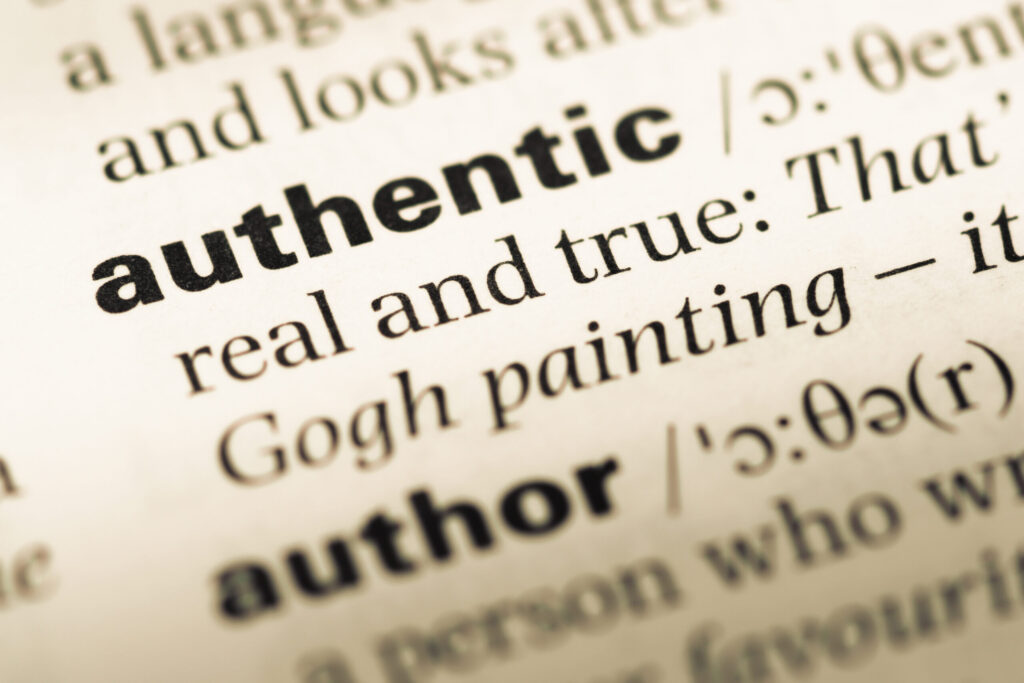Merriam-Webster has announced that “authentic” is its 2023 word of the year, and perhaps with good reason. In a world where it’s increasingly difficult to distinguish reality from fantasy, people want to know what is true. They crave authenticity in their daily interactions, including their interactions with brands and retailers.
Shoppers want a genuine connection with the brands they choose to support. In fact, the most recent Global Voices survey from ESW shows that consumers value authenticity and will reward authentic brands.
In this post, we’ll look at the survey results, explore what it means for brands to be authentic and provide ways to overcome the challenges of being authentic in a diverse global market.
The True Meaning of Being Authentic
Generally speaking, authenticity is about being true to oneself, remaining consistent with one’s values and expressing transparency and vulnerability. When it comes to brands, authenticity is telling consumers a story that reflects a brand’s values. Brand authenticity is all about building trust, connecting on a deeper level with consumers and fostering meaningful relationships.
Global Attitudes About Shopping Authentic Brands
According to ESW’s latest Global Voices Survey, shoppers around the globe want the brands they shop to be authentic. Nearly 6 in 10 (59%) of respondents say that when choosing a brand to shop with they look for evidence that the brand is true to its core values.
More than just choosing to shop an authentic brand, shoppers will reward authentic brands by spending more and being loyal.
- 70% of shoppers say they will exclusively shop with brands and retailers that the shopper believes is authentic.
- 64% say they would shop a brand’s competitor if the brands was not authentic.
- 64% of shoppers say they spend more with authentic brands.
Authenticity also mitigates what could otherwise drive customers away. More than half (51%) of survey respondents say that if they perceive a brand to be authentic, they continue to shop with the brand, even if the brand increased prices.
Creating an Authentic Experience
Brands that prioritise authenticity have a competitive advantage and stand out in crowded markets. ESW’s Global Voices survey results show that brands that own their online sales channels are perceived as more authentic and are a step ahead of brands that only sell on marketplaces. In fact, 55% of respondents said brand-operated channels deliver more authentic brand experiences online.
When brands create those authentic experiences, they see benefits that enhance long-term market success.
Building Trust
Authenticity helps build trust with consumers. In an era where consumers are more skeptical and conscious of corporate practices, being authentic establishes a genuine connection and fosters trust between brands and their customers.
Differentiation
Authentic brands stand out in a crowded market by showcasing their unique values, mission and identity. By being true to themselves, brands differentiate themselves from their competitors and attract a loyal customer base.
Customer Loyalty
When brands are authentic, they create an emotional connection with their customers. This emotional bond increases the likelihood of repeat purchases and long-term loyalty. Authenticity allows brands to form deeper relationships with shoppers, leading to customer loyalty.
Enhanced Reputation
Authenticity contributes to a positive reputation for brands. Customers appreciate transparency and honesty. Authentic brands are perceived as more trustworthy and credible. A strong reputation can drive customer acquisition and create a positive brand image.
Attracting Conscious Consumers
Many consumers today prioritise ethical values and consider them when making purchasing decisions. By being authentic, brands can appeal to these conscious consumers who value transparency, sustainability and social responsibility.
The Challenges of Being Authentic in a Diverse Global Market

Embracing brand authenticity may seem like table stakes for commerce success. Yet many brands find it difficult to be authentic. These difficulties are amplified as brands expand outside of their domestic markets and are no longer communicating to a culture they know.
Brands must acknowledge the unique challenges to authenticity in each market so they can overcome those challenges and connect with customers regardless of where they are.
Pressure to Conform
Brands often face pressure to conform to industry norms and market expectations. This pressure can make it difficult for them to express their unique values, voice and identity authentically. They may feel compelled to follow trends or mimic competitors, leading to a lack of authentic communication and presentation.
Balancing Consistency and Adaptability
Brands must strike a balance between staying consistent with their core values and adapting to changing consumer preferences and market dynamics. It can be challenging to maintain authenticity while also evolving and meeting the demands of an ever-changing landscape.
Corporate Structure and Decision-Making Processes
In large organisations, decision-making processes often involve multiple stakeholders and layers of approval. This can dilute the original authentic vision and result in compromises that water down the brand’s authenticity. The bureaucratic nature of large companies can hinder agility and quick decision-making necessary for authenticity.
Lack of Alignment Throughout the Organization
Brand authenticity should permeate throughout the entire organisation, from leadership to employees. However, if there is a lack of alignment in values, messaging or behaviours, it becomes difficult for brands to consistently convey authenticity. It requires a collective effort and clear communication to ensure everyone is aligned with the brand’s authentic identity.
Striving for Perfection
Brands may strive for perfection, fearing that any imperfection or mistake will damage their image. This pursuit of perfection can lead to a lack of authenticity as it masks genuine experiences, flaws and growth opportunities. Being an authentic brand means embracing imperfections and being open to learning and improving.
Overcoming the Challenges and Embracing an Authentic Strategy
Data clearly demonstrates that winning brands must overcome the challenges to being authentic. The path to overcoming the challenges begins with localisation. Brands that localise their messaging and brand presence to each market are best positioned to be perceived by the market as authentic.
In each market or territory, brands should:
Gain Cultural Understanding
Brands need a deep understanding of the local culture, customs and values in each market. They should conduct thorough research and engage with local experts to ensure brand messaging and actions are culturally appropriate and resonate with the target audience.
Employ Localisation Strategies
Brands must adapt brand messaging, content and marketing strategies to suit the specific cultural and linguistic nuances of each market. This includes translating and localising the website, social media content, advertisements and product packaging to align with local preferences and sensitivities.
Tailor Marketing Campaigns
Merchants should develop marketing campaigns that are relevant and relatable to the local audience in each market. They should consider local trends, holidays and traditions when crafting campaigns. In addition, personalised messaging addresses the unique needs and aspirations of the local consumers.
Collect Customer Feedback and Insights
Customer feedback lets brands understand customers’ specific needs, preferences and challenges. Brands should use this feedback to refine products, services and overall brand experience to better cater to the local market.
Have Local Teams and Representation
Brands and retailers must establish local teams and hire local representatives who understand the market and can provide insights and perspectives from within. Local employees can help bridge cultural gaps, offer local expertise and ensure that your brand is authentically represented.
The Takeaway
Even as 2023 draws to a close, being authentic will be relevant and a driving force for brand success into 2024 and beyond. Retailers that embrace brand authenticity will differentiate themselves from competitors.
Localisation is at the start and at the heart of brand authenticity. To quickly and properly localise the customer experience, brands need a partner that has experience. ESW helps the world’s best brands reach new global customers with exceptional, domestic-equivalent experiences.





